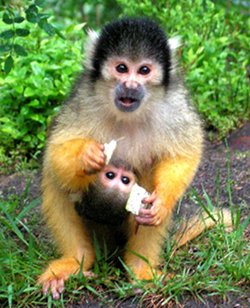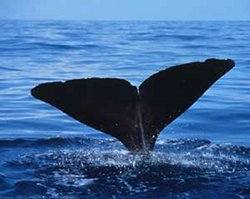 |
Credit: linkurl:Jens Buurgaard Nielsen;http://commons.wikimedia.org/wiki/File:Black-capped_Squirrel_Monkey%2Bbaby_(Saimiri_boliviensis).jpg |
 |
**__Related stories:__***linkurl:Sonar links bats and whales;http://www.the-scientist.com/news/display/57094/
[25th January 2010] *linkurl:A Fading Field;http://www.the-scientist.com/2009/06/1/32/1/
[1st June 2009] *linkurl:Primate lab slapped by USDA;http://www.the-scientist.com/blog/display/55688/
[12th May 2009]




















